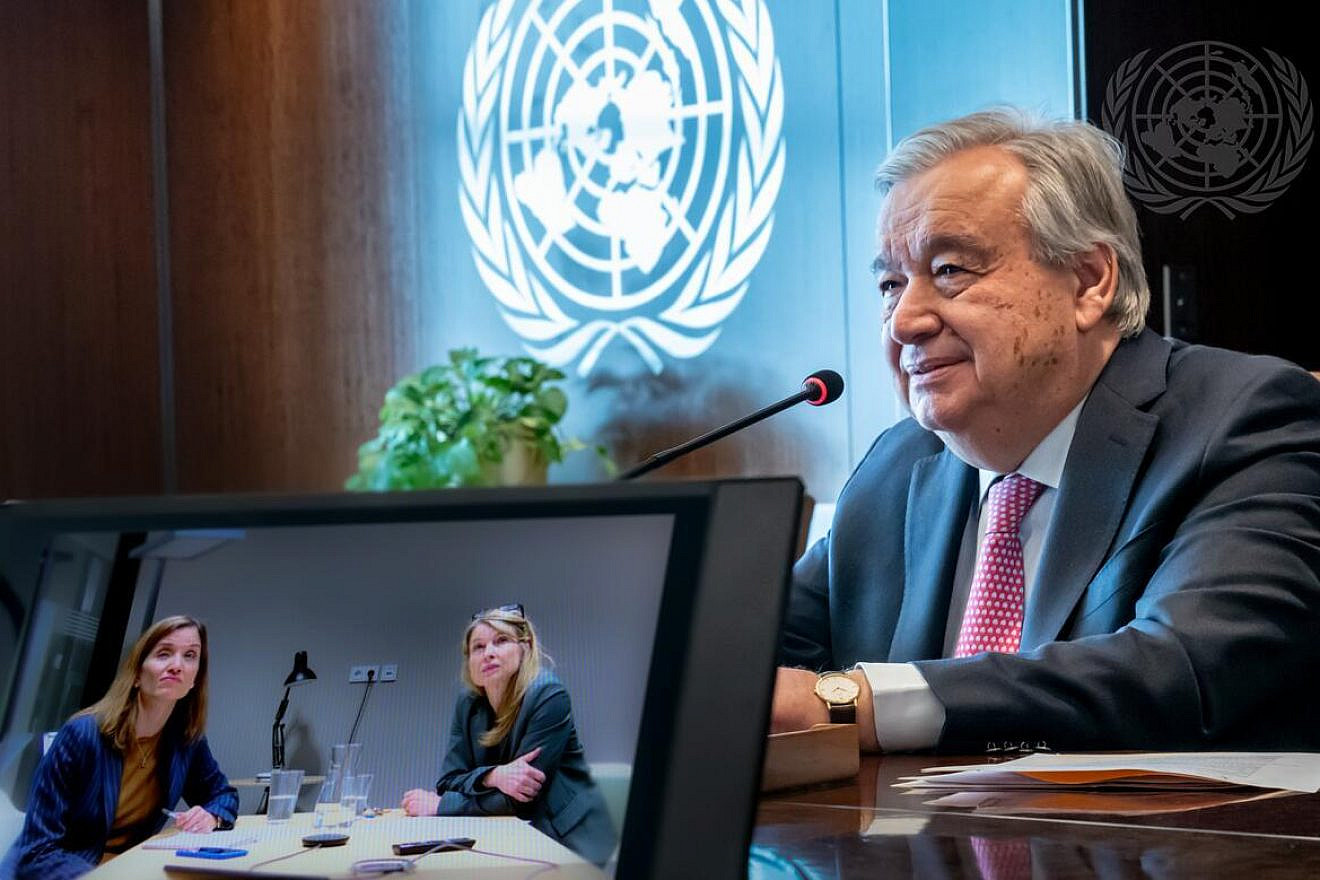On April 7, six months after Hamas’s terror attack in southern Israel, António Guterres, the United Nations secretary-general, posted a single message on social media—about the Rwandan genocide, which occurred 30 years ago.
The U.N. leader noted the six-month mark since Hamas’s attack in the days leading up to that Sunday. “Sunday marks six months since Hamas launched its abhorrent terror attacks in Israel,” he wrote at 9:32 a.m. on Friday. “I mourn with Israelis for the 1,200 people, including many women and children, killed in cold blood.”
Several people, including Yaari Cohen, an Israeli Foreign Affairs Ministry staffer, noted that the U.N. head apparently forgot about the hostages and about the other crimes that Hamas committed on Oct. 7.
“Seriously? No mention of the 134 Hostages still held in captivity at this very moment?” Cohen wrote. “No mention of the violent sexual assaults committed by Hamas on that day? That’s it? You should be ashamed of yourself.”
Some 19 minutes after his original post (and 17 after Cohen’s critique), Guterres wrote, “I renew my call for the unconditional release of all hostages still held by Hamas and other groups.”
“I have met with many of the family members of those being held captive and even former hostages themselves,” the U.N. secretary-general added. “I carry their anguish, uncertainty and deep pain with me every day.”
It was not clear if Guterres issued the second tweet in response to the criticism. But it is clear that he posted four more times that day—largely criticizing Israel.
In the first (at 1:31 p.m.), he wrote that Israel has caused “relentless death and destruction to Gaza” and engaged in “collective punishment of the Palestinian people.” An hour and a half later, Guterres wrote that he hopes “sincerely” that Israel’s plan to increase aid to Gaza will be “effectively and quickly materialized.”
Just over two hours later, the U.N. head wrote that “In its speed, scale and inhumane ferocity, the war in Gaza is the deadliest of conflicts—for civilians, aid workers, journalists, health workers and for our U.N. colleagues.”
“I am deeply troubled by reports that the Israeli military’s bombing campaign includes AI as a tool in the identification of targets, resulting in a high level of civilian casualties,” Guterres wrote three and a half hours later, referring to artificial intelligence. “AI should be used as a force for good to benefit the world; not to contribute to waging war on an industrial level, blurring accountability.”
Guterres was referring to a media report on the Israel Defense Forces’s use of artificial intelligence in its operations, which the IDF has called inaccurate and misleading.
The next day, on Saturday, Guterres wrote again about the six-month anniversary of Oct. 7. “The 7th of October is a day of pain for Israel and the world. Nothing can justify the horror unleashed by Hamas,” he wrote. “I once again condemn the use of sexual violence, torture and kidnapping of civilians and call for the unconditional release of all the hostages.”
On Sunday, the 30th anniversary of the beginning of the Rwandan genocide, Israeli President Isaac Herzog visited the East African country and marked the somber occasion with the Rwandan president.
Israeli politicians, across the political spectrum, U.S. Jewish leaders and many Israeli and American Jews have criticized Guterres widely for his and the global body’s public criticism of Israel and for repeatedly appearing to take sides against the Jewish state. Jewish U.N. employees recently told JNS that the global body has become a very difficult place to work as a Jew since Oct. 7.
Guterres is essentially persona non grata for Israeli government and diplomatic officials, who have refused to meet with him in the wake of his comments in late October that Hamas’s Oct. 7 massacre “did not happen in a vacuum.”
Having not posted about Israel on Sunday, Guterres went back to criticizing the Jewish state on Monday. “An information war has added to the trauma of the war in Gaza—obscuring facts and shifting blame. Denying international journalists entry into Gaza is allowing disinformation and false narratives to flourish,” he wrote.


























